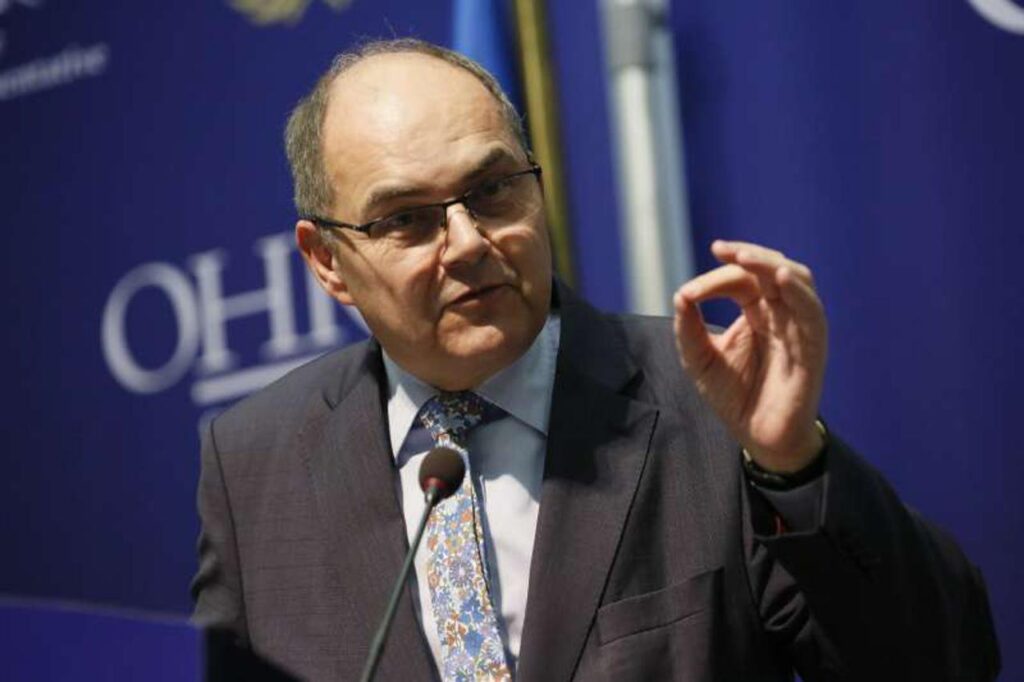Less than seven months after his last intervention, Bosnia’s international envoy has made another one in order to break the deadlock in government formation in the country’s Federation entity.
The High Representative to Bosnia has used his substantial “Bonn powers” to ensure government formation in the country’s Federation entity, imposing new changes to its constitution on Thursday. This was Christian Schmidt’s second intervention to the constitution in less than seven months.
“The Prime Minister, Vice-Presidents and Ministers of the Government of the Federation proposed by the President of the Federation of Bosnia and Herzegovina in the draft decision she signed on March 30, 2023 … are hereby considered appointed,” Schmidt told the media.
“What we are witnessing is a political stalemate, not a conflict between constituent peoples. The will of the voters in the elections cannot be ignored … For this reason, I have made a decision to unblock the appointment of the government of the Federation of Bosnia and Herzegovina,” he added.
The government of the Federation, one of two entities in Bosnia, is appointed by the entity’s president and two vice-presidents. It then needs to be confirmed in the House of Representatives, one of two houses in the entity parliament.
Schmidt also imposed new changes to the constitution of the Federation to prevent future blockades. From now on, if one of the vice-presidents does not agree on the new government within 30 days from when the president and vice-presidents are appointed, the president will have another 30 days to appoint the government with the signature of only one vice-president.
Besides changing the constitution of the Federation entity, Schmidt also imposed changes to the criminal code of Bosnia and Herzegovina, introducing political bribery as a criminal act punishable by up to ten years in prison, with a fine as well, in “order to improve the elections’ integrity”.
The governing coalition in the mainly Bosniak and Croat entity, the so-called “Osmorka” (Eight), which comprised eight Bosniak and civic parties, together with the Croatian Democratic Union, HDZ – despite having a majority in the House of the Representatives, as well as one president and one vice-president of the entity – was still unable to appoint the government by the constitutional deadline on April 6.
This is because Refik Lendo, Bosniak vice-president of the entity and member of the biggest Bosniak party, the Party of Democratic Action, SDA, refused to approve the appointment of the new government, which does not have any SDA ministers.
The coalition fell apart after the deadline passed, but a new one was formed in a matter of days. The new government still needs to be voted in the House of Representatives.
Lendo and the SDA both criticised Schmidt’s decision.
“Schmidt’s temporary decision to bypass my signature is rude. I am not sure if people will accept it, but we will see how the situation unfolds,” Lendo said.
“In the explanation of the decision given at today’s press conference, in which he claims not to act against any people, that the will of the voters expressed in the elections cannot be ignored, and that he made the decision because there was no agreement, the High Representative insults the intelligence of the citizens,” an SDA press release on Thursday night said.
But the US embassy to Bosnia offered support, saying the current situation was unsustainable.
“It is regrettable that the High Representative had to intervene to ensure success of such a basic democratic process, however, it is clear that another period of the government in technical mandate would be harmful and destabilizing not just to the Federation, but to all of BiH,” it said.
The current ministers in the Federation government were appointed in 2015, following the 2014 elections. Since 2018, they have been serving in a technical mandate as a result of political blockades related to demands for electoral reform. This blockage was removed by Schmidt, minutes after most voting stations closed on election night, October 2, last year.
Source : Balkan Insight


